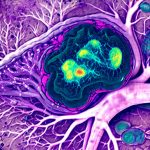Inflammatory urological conditions represent a significant clinical challenge, impacting millions worldwide with symptoms ranging from chronic pelvic pain to debilitating urinary dysfunction. Traditional approaches, often relying on antibiotics (even when ineffective against non-bacterial causes) and symptom management, frequently fall short of providing lasting relief for patients suffering from conditions like interstitial cystitis/bladder pain syndrome (IC/BPS), prostatitis, and urethritis. The underlying complexity lies in the interplay between immune dysregulation, neuroinflammation, and epithelial barrier dysfunction within the urinary tract. Increasingly, clinicians are recognizing the need to shift beyond purely symptomatic treatments towards therapies that address these fundamental immunological mechanisms driving chronic inflammation. This has spurred growing interest in the potential of immunomodulators – substances capable of modulating the immune response – as a novel therapeutic strategy in urology.
The promise of immunomodulation rests on the idea that restoring balanced immune function can alleviate the persistent inflammatory state characteristic of many urological disorders. It’s not about suppressing the immune system entirely, which could leave patients vulnerable to infection; rather, it’s about re-tuning it – dampening overactive responses and promoting regulatory mechanisms that restore tissue homeostasis. This approach acknowledges that inflammation, while often perceived negatively, is a crucial part of normal healing processes. In chronic inflammatory conditions, however, this process becomes dysregulated and self-perpetuating, necessitating interventions aimed at restoring balance. The challenge lies in identifying the appropriate immunomodulatory agents and tailoring treatment strategies to individual patient profiles, considering the specific immunological pathways involved in their condition.
Immunomodulation Strategies in Urological Disorders
The field of immunomodulation encompasses a diverse range of therapeutic approaches, from naturally occurring compounds to synthetically engineered molecules. In urology, several strategies are currently being explored, each with its own strengths and limitations. One prominent approach involves targeting key cytokines – signaling molecules that mediate immune cell communication – involved in the inflammatory cascade. For instance, therapies aimed at reducing IL-6 or TNF-alpha production have shown promise in preclinical studies of IC/BPS, as these cytokines are frequently elevated in patients experiencing bladder pain and urinary frequency. Another strategy focuses on enhancing the function of regulatory T cells (Tregs), which play a critical role in suppressing excessive immune responses and maintaining immunological tolerance. Boosting Treg activity can help restore balance within the urinary tract microenvironment, reducing inflammation without compromising overall immunity.
Beyond cytokine modulation and Treg enhancement, research is also investigating the use of agents that directly impact mast cell activation – mast cells are key players in allergic and inflammatory reactions and have been implicated in the pathogenesis of IC/BPS. Stabilizing mast cells can reduce histamine release and subsequent neuroinflammation, potentially alleviating bladder pain and urgency. Finally, there’s growing interest in utilizing probiotics to modulate gut microbiota composition, recognizing the strong gut-bladder axis – bidirectional communication between the gut microbiome and urinary tract inflammation. A healthy gut microbiome can contribute to a more balanced immune system overall, indirectly impacting urological health.
It’s important to note that many of these strategies are still in early stages of clinical development, and further research is needed to determine their efficacy and safety profiles. However, the initial findings are encouraging, suggesting that immunomodulation holds significant potential as a novel treatment modality for chronic inflammatory urological conditions. The future likely lies in personalized approaches that combine different immunomodulatory agents tailored to each patient’s specific immunological profile and disease characteristics.
Specific Immunomodulators Under Investigation
Several specific immunomodulators are currently being evaluated for their therapeutic potential in urology. Pentosan polysulfate sodium (PPS), initially developed as an anticoagulant, has been used off-label for IC/BPS for decades, though its mechanism of action remains debated. While some believe it acts directly on bladder epithelial cells to restore barrier function, increasing evidence suggests it also possesses immunomodulatory properties, potentially reducing inflammation and modulating cytokine production. Another promising agent is Bacillus Calmette-Guérin (BCG), a live attenuated bacterium used primarily in the treatment of bladder cancer. However, BCG’s potent immunostimulatory effects have led to its off-label use in refractory IC/BPS cases – it stimulates an immune response within the bladder that can “reboot” the local immunological environment and reduce inflammation.
More recently, research has focused on newer immunomodulators with more targeted mechanisms of action. For example, several monoclonal antibodies targeting specific cytokines or immune cell receptors are under investigation in clinical trials. These therapies offer the potential for greater precision and fewer side effects compared to broader immunosuppressive agents. Additionally, natural compounds like curcumin (from turmeric) and resveratrol (found in grapes) have demonstrated anti-inflammatory and immunomodulatory properties in vitro and in vivo, sparking interest in their potential as adjunctive therapies. The challenge with these natural compounds lies in ensuring adequate bioavailability and delivery to the target tissues within the urinary tract.
Modulation of Cytokine Pathways
Cytokines are central to the inflammatory process, acting as messengers between immune cells and driving a cascade of events that result in tissue damage and chronic symptoms. In urological conditions like IC/BPS and chronic prostatitis, specific cytokines – IL-6, TNF-alpha, IL-1beta, and IL-8 – are often found elevated within the urinary tract, contributing to pain, urgency, and frequency. – Targeting these key cytokines represents a promising immunomodulatory strategy. One approach involves using monoclonal antibodies or small molecule inhibitors to directly block cytokine activity, preventing them from binding to their receptors and triggering downstream signaling pathways.
- Another strategy focuses on modulating the production of these cytokines by immune cells. This can be achieved through various mechanisms, including enhancing the function of regulatory T cells (Tregs) which suppress pro-inflammatory cytokine release or using agents that directly inhibit cytokine gene expression. – A crucial consideration in cytokine modulation is the complexity of the immune system; blocking a single cytokine may not always be effective as other cytokines can compensate and maintain inflammation. Therefore, combination therapies targeting multiple pathways may be necessary to achieve optimal results. Furthermore, identifying which cytokine profiles are dominant in individual patients will be essential for personalized treatment approaches.
Harnessing Regulatory T Cells (Tregs)
Regulatory T cells (Tregs) play a vital role in maintaining immune homeostasis by suppressing excessive immune responses and preventing autoimmunity. In chronic inflammatory urological conditions, Treg function is often impaired, contributing to the persistent inflammation and tissue damage. – Restoring or enhancing Treg activity represents a powerful immunomodulatory strategy. This can be achieved through several methods, including adoptive cell therapy (transferring ex vivo expanded Tregs into patients), administering agents that promote Treg differentiation, or creating an environment within the urinary tract that favors Treg recruitment and activation.
- One promising approach involves using low-dose IL-2, a cytokine essential for Treg development and survival. While high doses of IL-2 can stimulate other immune cells, low-dose administration selectively enhances Treg function without causing significant systemic immunosuppression. – Another strategy focuses on modulating the gut microbiome to promote Treg induction; certain bacterial species produce metabolites that enhance Treg activity, highlighting the importance of the gut-bladder axis. The challenge with Treg-based therapies lies in ensuring their persistence and functionality within the urinary tract microenvironment, as well as preventing unintended off-target effects.
Addressing Mast Cell Activation & Neuroinflammation
Mast cells are immune cells residing in tissues that release histamine and other inflammatory mediators upon activation. In IC/BPS, mast cell activation is thought to play a significant role in driving neuroinflammation – inflammation of the nerves within the bladder wall – which contributes to chronic pelvic pain. – Targeting mast cell activation represents an attractive immunomodulatory strategy. This can be achieved through various methods, including using mast cell stabilizers (agents that prevent histamine release) or blocking receptors involved in mast cell signaling.
- A key challenge is identifying the specific triggers for mast cell activation in individual patients; these may vary depending on the underlying cause of IC/BPS. – Furthermore, addressing neuroinflammation requires a multifaceted approach – not only reducing mast cell activation but also protecting nerve fibers from damage and promoting nerve regeneration. This may involve using neuroprotective agents or therapies aimed at restoring neuronal function within the bladder wall. The interplay between mast cells, nerves, and the immune system is complex, requiring further research to fully understand the mechanisms driving chronic pain in IC/BPS and develop effective targeted therapies.





















